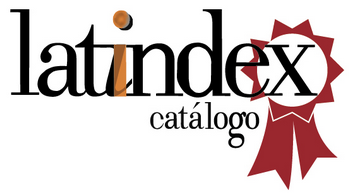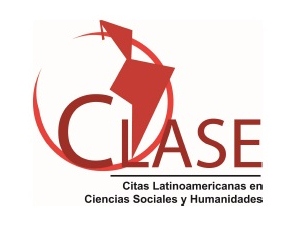Voces tercerizadas y footing relacional: ¿puede, el silencio, ser un argumento?
Resumen
Propongo un abordaje interaccional de la argumentación entre agentes naturales en la vida cotidiana. Particularmente me enfoco en sujetos epistémicos que conforman una relación diádica estable, afectiva y, al mismo tiempo, conflictiva. Aunque la esfera microsocial está poblada de múltiples relaciones diádicas con estas condiciones, tomaré como ejemplo una díada conyugal. Plantearé que, ante el desacuerdo recalcitrante, estas díadas tienden cada vez más a adoptar un irreflexivo optimismo argumental que incluye tanto el uso estereotipado de verbalizaciones como de silencios relacionalmente organizados. La automatización de estos roles instaura rígidos acoplamientos argumentales que diezman significativamente el ejercicio de la autonomía epistémica de la díada. La argumentación pasa a ser parte del conflicto mismo, agravándolo, puesto que fermentan maniobras vertiginosas y viciosas. En contraste, el cultivo de habilidades argumentales que aumenten la razonabilidad es condición de posibilidad para transitar el desacuerdo con una actitud reflexiva acerca de los costos, peligros y ventajas de la argumentación. Tal virtuosismo define a un “buen argumentador” y prospera justamente en los intervalos silenciosos que separan un ciclo discusional de otro.Citas
Calveiro, P. (2005). Familia y Poder. Buenos Aires: Ed. Araucaria.
Cohen, D. (2019). No argument is an island: Argumentation between arguments. In
Proceedings of the ninth conference of the International Society for the Study of
Argumentation, eds. B. Garssen, D. God-den, G. R. Mitchell and J. H. M. Wagemans, 210-
Amsterdam: Sic Sac.
Cohen, D. (2022) El silencio Injusto en la argumentación: Virtudes y Vicios de quienes
argumentan. En Injusticias Epistémicas (De Brasi y Santibañez Eds). Lima: Palestra
editores.
Coria, C. (1996). Las negociaciones nuestras de cada día. Buenos Aires: Paidós.
Christiansen, M. (2019). Violencia interpersonal y arrogancia neutralista. Un abordaje ético-
epistemológico sobre la argumentación y la objetividad. Revista Internacional
Interdisciplinar INTERthesis, 16(1), 91-107.
doi:https://doi.org/10.5007/1807- 1384.2019v16n1p91
_Christiansen, M. (2020) Parasitismo argumental. El punto muerto de la deliberación.
Oxímora. Revista internacional de ética y política. 16. 50-62
doi:10.1344/oxi.2020.i16.29689.
_Christiansen, M. (2021). La ecología epistémica del desacuerdo profundo: un análisis
reflexivo sobre la discusión interpersonal. Griot Revista De Filosofia, 21(2), 376-394.
https://doi.org/10.31977/grirfi.v21i2.2323
_Christiansen, M. L. (2023). Instrumentalismo Argumental y Conflicto Epistémico. Costos,
Ganancias y Riesgos de las Discusiones Entre Íntimos. European Scientific Journal,
ESJ, 19(35), 160. https://doi.org/10.19044/esj.2023.v19n35p160
Furedy, Frank. (2004) Therapy Culture: Cultivating Vulnerability in an Uncertain Age. London
Routledge.
Gascón, J.A. (2020). “Las Motivaciones en la Argumentación”. En C. Santibáñez (ED.)
Emociones, Argumentación y Argumentos Lima: Palestra. 53-74
Gilbert, M. A. (2010). Argumentación multimodal. In F. Leal Carretero, C. González Ramírez, &
V. Favila Vega (Eds.), Introducción a la argumentación (73-90). Guadalajara: Editorial
Universitaria.
Goffman, E. (1981). Forms of talk. Philadelphia, PA: University of Pennsylvania Press.
Illouz, E. (2010) La Salvación del Alma Moderna. Terapia, Emociones y la Cultura de la
Autoayuda. Barcelona: Editorial Katz.
Kunda, Z. (1990). The case for motivated reasoning. Psychological Bulletin, 108(3). 480-498.
Kunda, Z. (1999). Social Cognition: Making Sense of People. MIT Press.
Paglieri, F. (2009). Ruinous Arguments: Escalation of disagreement and the dangers of arguing.
OSSA Conference Archive. Paper 121.
Paglieri, F. & Castelfranchi, C. (2010) Why argue? Towards a cost–benefit analysis of
argumentation, Argument and Computation, 1:1, 71-91, DOI: 10.1080/19462160903494584
Pereda, C. (1994). Vértigos argumentales. Una ética de la disputa. Barcelona: Anthropos &
UAM-Iztapalapa.
Pereda, C. (1996). ¿Qué es un buen argumento? Theoria. Segunda Época, 11(25), San
Sebastián: Universidad del País Vasco, 7-20.
Pereda, C. (1999). Crítica de la razón arrogante. México: Taurus-Alfaguara.
Popper, K. (1985). La lógica de la investigación científica (7a. ed.). Madrid: TECNOS.
Una vez que un texto es aceptado para su publicación en Quadripartita Ratio, sus autores deben firmar dos documentos de carácter legal: una Licencia de uso y una Declaración de autoría.
Con la Licencia de uso, los autores autorizan la publicación de su obra y la difusión de ésta (integración en bases de datos, difusión en nuestras redes sociales, reediciones posibles, etc.). No obstante, se autoriza la descarga, reproducción y distribución de todos nuestros contenidos publicados, siempre que no se modifique el contenido y se indique su origen (nombre de la revista, volumen, número, páginas y dirección electrónica del documento).
Con la Declaración de autoría, los autores manifiestan que la obra es de su autoría, original e inédita.









